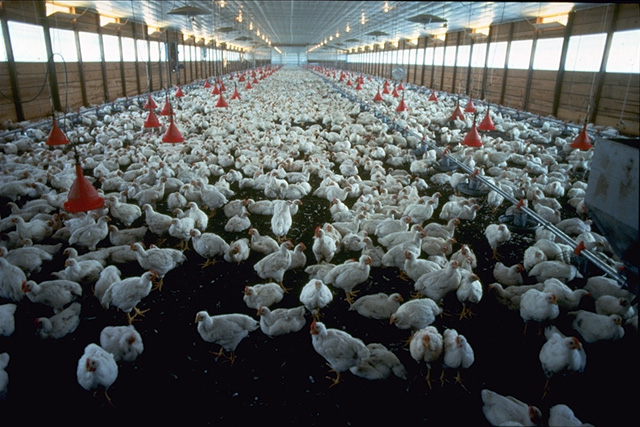Hillandale Farms Corporate Farming Done Right
 |
| en.wikipedia.org |
Hillandale Farms talks about corporate farming and how to do it sustainably.
Hillandale Farms Discusses Proper Corporate Farming
According to Hillandale
Farms, Sustainability is a quickly growing hot-button issue in agriculture.
Consumers have become increasingly aware of where their food comes from, making
corporate farming an increasingly debatable topic linked to sustainability's
definition. Whether or not we can find ways for businesses to produce our
sustenance without compromising natural resources remains a pressing question -
one that has sparked a spirited conversation within the agricultural industry
about how best to feed our planet now and tomorrow.
Hillandale Farms explains
how farmers can farm responsibly in the context of sustainability and corporate
farming.
Corporate farming refers
to the large-scale commercial farming operation where a single company owns and
operates a farm. These kinds of companies often seek to maximize efficiency and
production. They do this to sell their crops in grocery stores or other big
markets. Corporate farming can be efficient. However, Hillandale Farms says it
can also negatively affect the environment.
Corporate farms play an
important role in food production but can cause major environmental issues. The
overuse of pesticides and herbicides has the potential to contaminate soil and
water sources, while the clearing of land often leads to poor air quality due
to erosion as good displacement of wildlife habitats. Considering these risks
when deciding how our food is produced could help reduce future damage caused
by corporate farms.
That said, despite these
potential drawbacks, Hillandale Farms notes that corporate farming remains a
popular method of food production due to its high yield and low cost. To
balance things out, corporations should look at a more sustainable way of doing
things. After all, sustainability in corporate farming is a more responsible
approach to food production.
Sustainable corporate
farming is an environmentally progressive approach that works to maintain the
integrity of our planet while providing customers with a safe, enjoyable
product. It implements strategies such as crop rotation and soil conservation
measures to minimize damage; makes use of renewable energy sources when
possible, instead of relying on damaging chemicals; provides job opportunities
for local communities from which farmers can benefit by learning new methods
and practices required for sustainable agriculture production; all while
upholding equal access rights to resources across society.
According to Hillandale
Farms, sustainability in corporate farming matters. It can potentially lessen
the negative impacts of large-scale agriculture on the environment. These
practices can also help increase yields for farmers while preserving their
livelihoods. Consumers also greatly benefit from increased access to healthier,
more sustainable food products. Additionally, reducing the environmental
impacts of corporate farming helps protect the planet for future generations.
To ensure corporate
farming is sustainable for generations, we must thoroughly examine all aspects
of the agricultural system. That includes land management practices, farmer
education, and production methods that are both responsible and economical.
Product labels should clearly explain what each product contains so consumers
can make informed decisions on the grocery store shelves. It's also integral to
stick with policies related to using pesticides or any other chemicals
responsibly. All this together helps us ensure sustainability in corporate
farming - now and into our re-growing future.
By making conscientious
consumer choices, we can help lead the charge for a more sustainable future. We
can make positive changes by buying from companies that apply responsible
agricultural principles and avoiding those that don't.
Started in 1958
as an egg reselling company, HillandaleFarms now raises over 20 million chickens for eggs and is one of the
top five egg producers in the United States. The family-owned and operated
company prioritizes the safety and conditions of its birds. Read similar posts
by visiting this blogsite.




Comments
Post a Comment